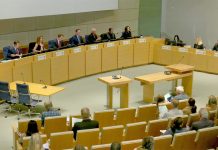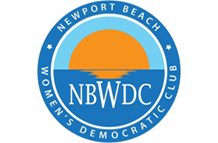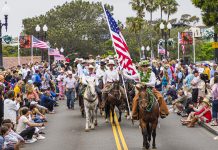Those invited to deliver an invocation before Newport Beach City Council meetings now have less restrictions that they have in the past. The city amended City Council Policy A-19 at the last city council meeting, effectively replacing the original resolution passed in 2004.
Councilman Jeff Herdman pulled the item from the consent calendar to clarify the new policy for residents, specifically those who had voiced their concerns. Some had written to council about the lack of diversity in religious organizations located within Newport Beach itself.
Herdman said that they invite people from all over, not just Newport Beach. “This new policy will expand opportunity,” for people of many different faiths he shared.
Councilwoman Diane Dixon echoed Herdman’s words and said that Newport Beach “extends invitations beyond city limits.”
When she was mayor, Dixon stated, many declined to give an invocation because the city’s policy was so restrictive. Specific deities, holidays, and wording from religious texts was prohibited in invocations under the former policy.
Councilman Scott Peotter also bemoaned the previous policy in a 2013 op-ed piece published in the Newport Beach Indy. He commended Newport Beach for having a invocation, as many cities do not, but argued the court-established rules “that tell you what you cannot do,” made for ineffective invocations. Peotter did not comment on the issue Tuesday night.
The newly amended A-19 policy does not restrict speech. Neither wording nor length are limited, and even goes as far to say that the invocation will not be reviewed or edited by city staff or council members before it is delivered.
Resident Jim Mosher objected to the new policy, and advised council to at least set a word or time limit in the policy given to future invocation speakers. He also pointed out that those not belonging to a specific group should be allowed to speak, and that “prayer is not the only way to solemnize an occasion.”
“I think you have to have a mechanism for people who are not affiliated with a group to get on that list,” Mosher remarked.
“Someone could lead an invocation if they are a member of a group, or no group at all, religion or no religion at all, and a moment of silence is acceptable as a prayer,” Mayor Kevin Muldoon said in response, although A-19 does not specifically reflect that.
Another speaker voiced concern that without specific restrictions, disparaging words could be shared by the invocation speaker.
If a future invocational speaker does comment offensively about another faith, “that is their First Amendment right,” Muldoon replied. “Our goal is to expand speech, not limit it.”
Rude speakers, however, would not likely be invited back to speak.
The city clerk maintains a list of local and nearby religious leaders who wish to be invited to future city council meetings. People can write or email the city clerk to be included on that list.
Future invocational speakers will be instructed in a letter that reads, “To maintain a spirit of respect and ecumenism, the City Council requests only that the prayer opportunity not be exploited as an effort to convert others to the particular faith of the invocational speaker, nor to disparage any faith or belief different than that of the invocational speaker.”
Before moving to vote on the item, Muldoon said the broadness of the wording was intentional: “We want to err on the side of freedom.”
To be included on the list of potential invocational speakers, email city clerk Leilani I. Brown at [email protected].




